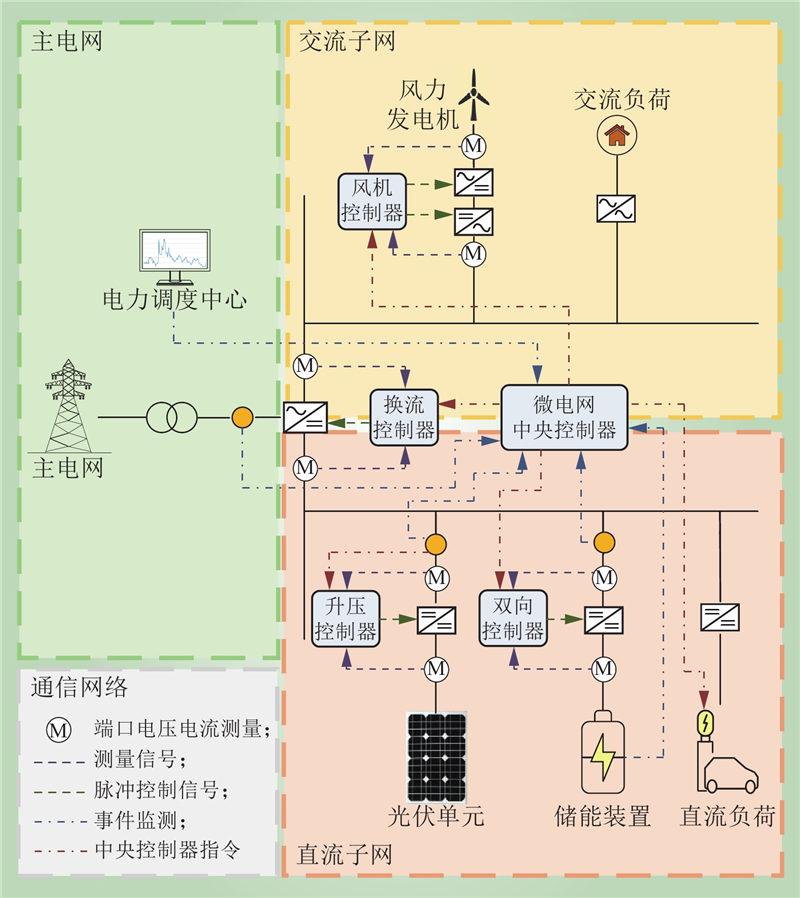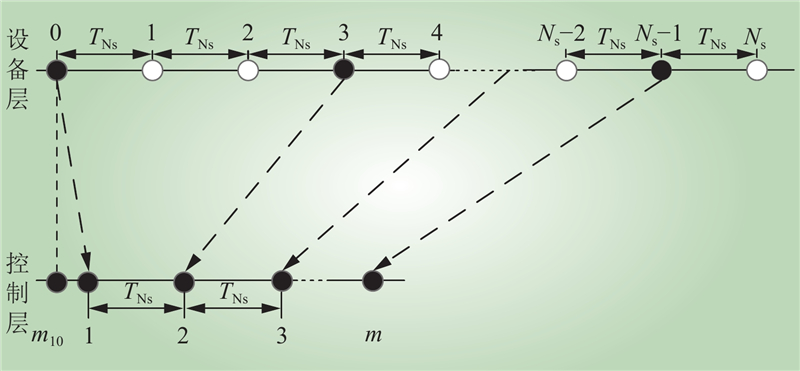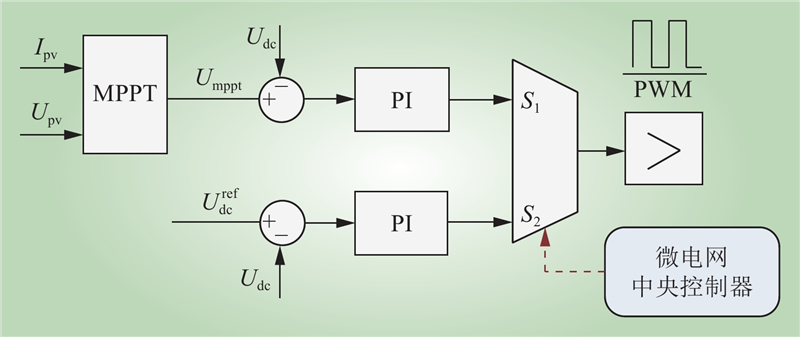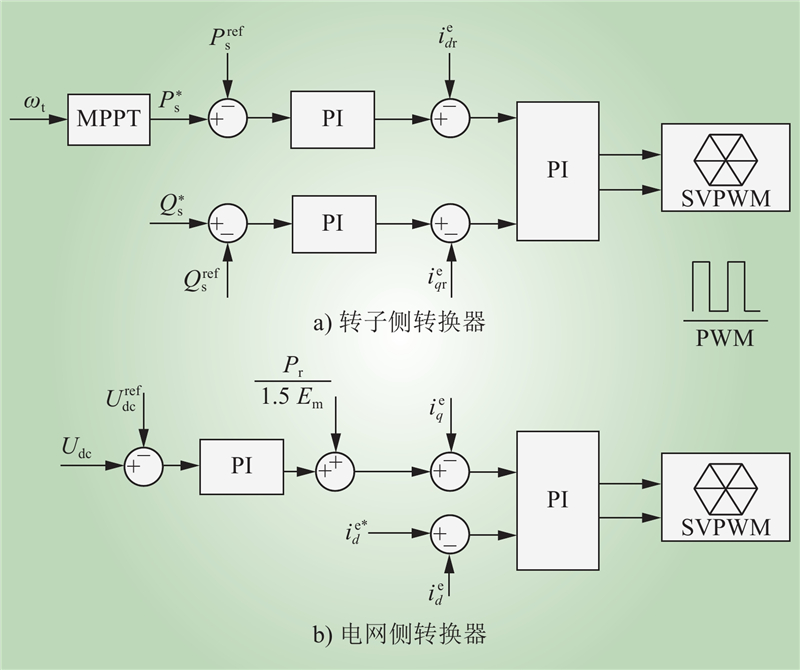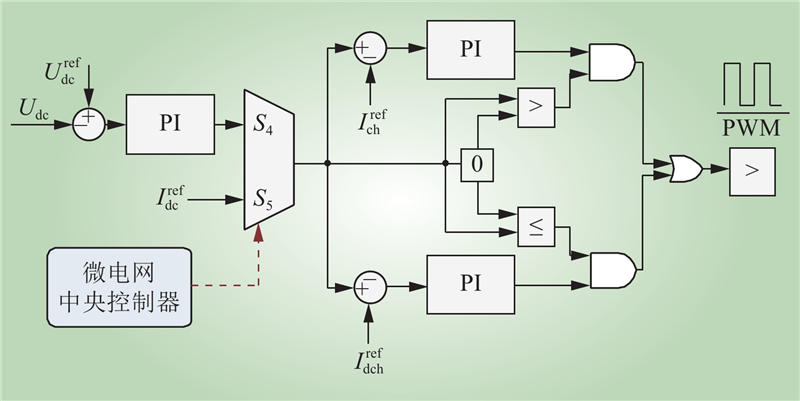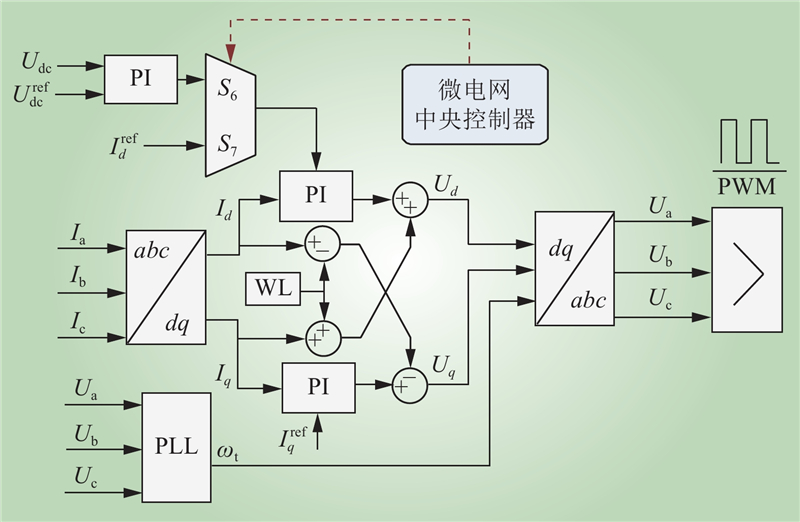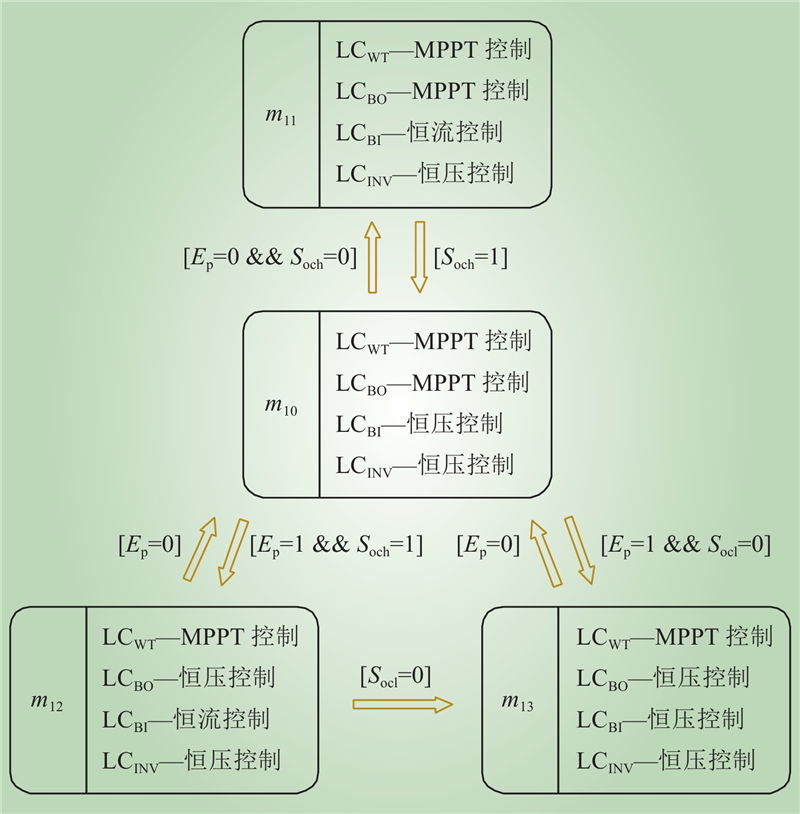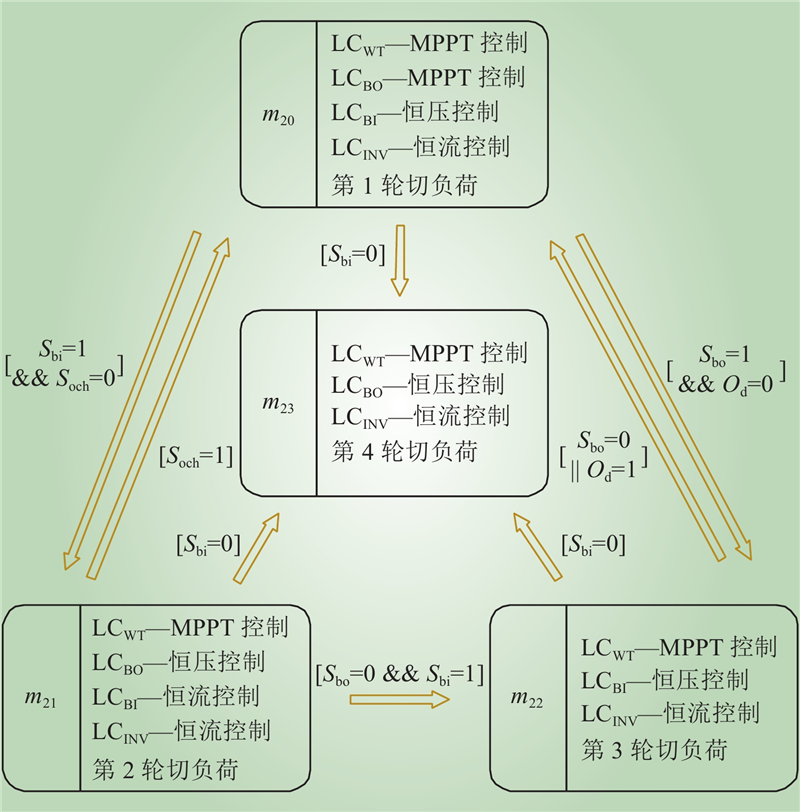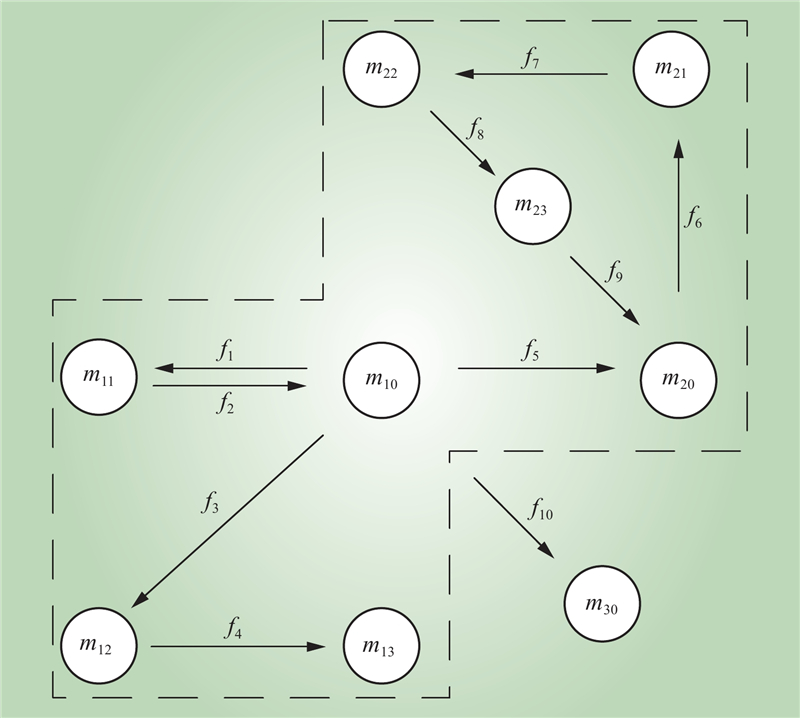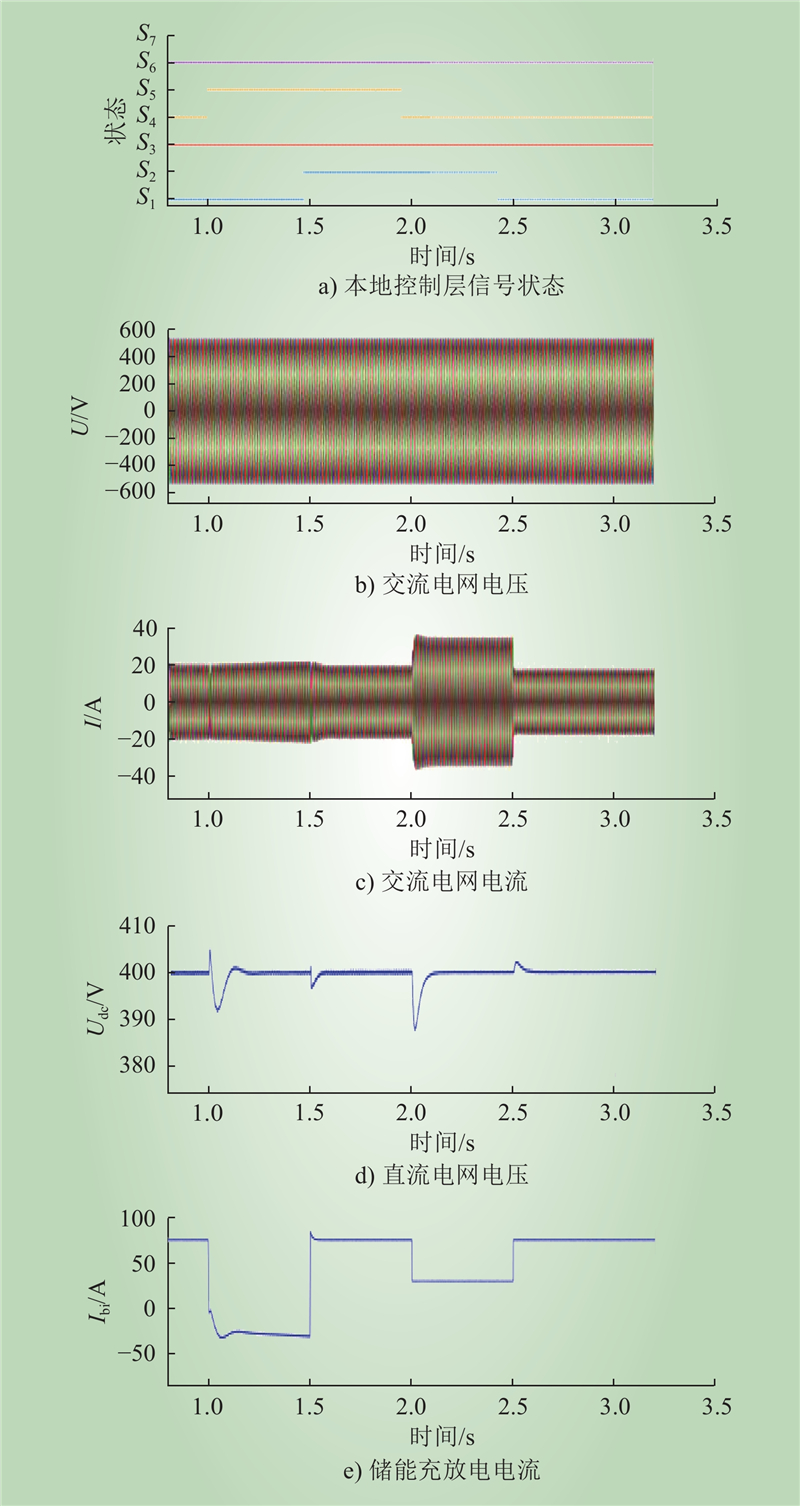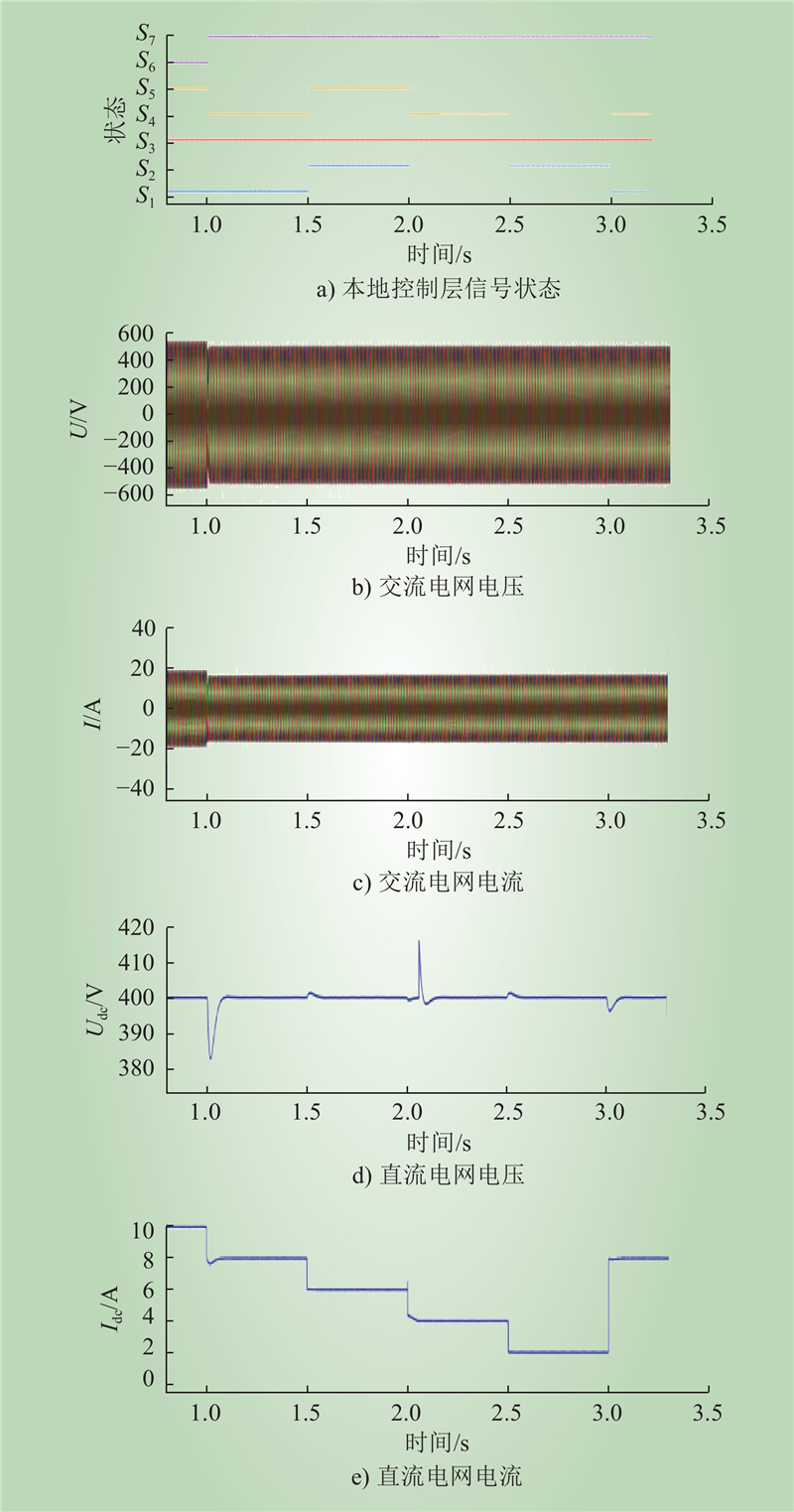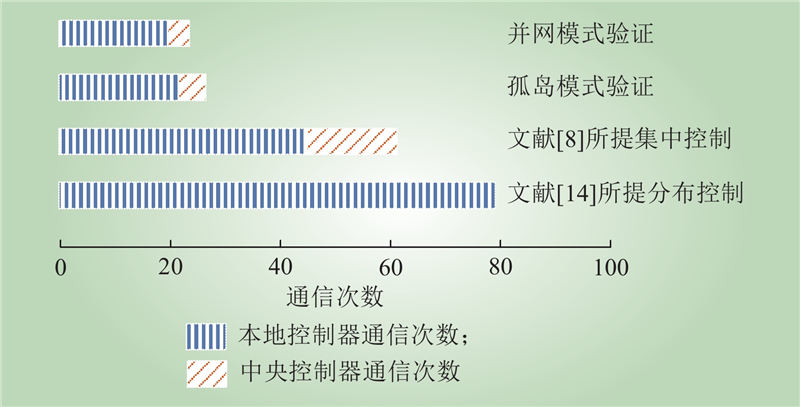| 1 |
陈杰, 钮博文, 张俊文, 等. 微电网运行模式平滑转换的混合控制策略[J]. 中国电机工程学报, 2015, 35 (17): 4379- 4387.
|
|
CHEN Jie, NIU Bowen, ZHANG Junwen, et al. Hybrid control strategy for the seamless transfer of microgrids[J]. Proceedings of the CSEE, 2015, 35 (17): 4379- 4387.
|
| 2 |
杨向真, 李玉宁, 杜燕, 等. 交直流混合微电网多模式功率协调控制策略[J]. 高电压技术, 2021, 47 (4): 1262- 1274.
|
|
YANG Xiangzhen, LI Yuning, DU Yan, et al. Multi-mode power coordination control strategy for AC/DC hybrid microgrid[J]. High Voltage Engineering, 2021, 47 (4): 1262- 1274.
|
| 3 |
刘慧文, 王生铁, 刘广忱, 等. 风光柴储微电网容量优化配置的运行策略[J]. 太阳能学报, 2022, 43 (9): 453- 460.
|
|
LIU Huiwen, WANG Shengtie, LIU Guangchen, et al. Operation strategy of optimal capacity allocation of wind, solar and diesel storage microgrid[J]. Acta Energiae Solaris Sinica, 2022, 43 (9): 453- 460.
|
| 4 |
邱星宇, 吴毓峰, 王梓耀, 等. 计及并离网频率约束的微电网容量优化配置方法[J]. 电力系统保护与控制, 2023, 51 (21): 166- 177.
|
|
QIU Xingyu, WU Yufeng, WANG Ziyao, et al. Optimal configuration method of microgrid capacity considering grid connection and islanding frequency constraints[J]. Power System Protection and Control, 2023, 51 (21): 166- 177.
|
| 5 |
毕永健, 徐丙垠, 赵艳雷, 等. 同步定频微电网的并网/孤岛无缝切换控制策略[J]. 电网技术, 2022, 46 (3): 923- 933.
|
|
BI Yongjian, XU Bingyin, ZHAO Yanlei, et al. Seamless transfer control strategy between grid-connected and islanding operation for synchronous fixed-frequency microgrid[J]. Power System Technology, 2022, 46 (3): 923- 933.
|
| 6 |
CINTUGLU M H, YOUSSEF T, MOHAMMED O A. Development and application of a real-time testbed for multiagent system interoperability: a case study on hierarchical microgrid control[J]. IEEE Transactions on Smart Grid, 2018, 9 (3): 1759- 1768.
|
| 7 |
时远海, 刘波, 姚贤炯. 微电网通信体系架构及通信技术体制分析[J]. 电力信息与通信技术, 2018, 16 (4): 9- 14.
|
|
SHI Yuanhai, LIU Bo, YAO Xianjiong. Analysis of micro grid communication architecture and communication technology[J]. Electric Power Information and Communication Technology, 2018, 16 (4): 9- 14.
|
| 8 |
HE J W, PAN Y W, LIANG B H, et al. A simple decentralized islanding microgrid power sharing method without using droop control[J]. IEEE Transactions on Smart Grid, 2018, 9 (6): 6128- 6139.
|
| 9 |
郭伟, 赵洪山. 基于事件触发机制的直流微电网多混合储能系统分层协调控制方法[J]. 电工技术学报, 2020, 35 (5): 1140- 1151.
|
|
GUO Wei, ZHAO Hongshan. Coordinated control method of multiple hybrid energy storage system in DC microgrid based on event-triggered mechanism[J]. Transactions of China Electrotechnical Society, 2020, 35 (5): 1140- 1151.
|
| 10 |
陈郁林, 谷雨润, 闫云凤, 等. 有向通信拓扑下基于分布式触发控制的微电网二次控制方法[J]. 电子与信息学报, 2022, 44 (11): 3806- 3814.
|
|
CHEN Yulin, GU Yurun, YAN Yunfeng, et al. Secondary control method of microgrid based on distributed trigger control under directed communication topology[J]. Journal of Electronics & Information Technology, 2022, 44 (11): 3806- 3814.
|
| 11 |
刘子文, 苗世洪, 范志华, 等. 孤立交直流混合微电网双向AC/DC换流器功率控制与电压波动抑制策略[J]. 中国电机工程学报, 2019, 39 (21): 6225- 6238.
|
|
LIU Ziwen, MIAO Shihong, FAN Zhihua, et al. Power control and voltage fluctuation suppression strategy of the bidirectional AC/DC converter in the islanding hybrid microgrid[J]. Proceedings of the CSEE, 2019, 39 (21): 6225- 6238.
|
| 12 |
郭力, 张绍辉, 李霞林, 等. 考虑电网分时电价的直流微电网分层协调控制[J]. 电网技术, 2016, 40 (7): 1992- 2000.
|
|
GUO Li, ZHANG Shaohui, LI Xialin, et al. Hierarchical coordination control for DC microgrid considering time-of-use price[J]. Power System Technology, 2016, 40 (7): 1992- 2000.
|
| 13 |
SALEH M, ESA Y, MOHAMED A A. Communication-based control for DC microgrids[J]. IEEE Transactions on Smart Grid, 2019, 10 (2): 2180- 2195.
|
| 14 |
PENG J K, FAN B, XU H, et al. Discrete-time self-triggered control of DC microgrids with data dropouts and communication delays[J]. IEEE Transactions on Smart Grid, 2020, 11 (6): 4626- 4636.
|
| 15 |
张占强, 窦春霞, 岳东, 等. 考虑通信时延的事件触发电压分布式协同控制[J]. 中国电机工程学报, 2020, 40 (17): 5426- 5435.
|
|
ZHANG Zhanqiang, DOU Chunxia, YUE Dong, et al. Event-triggered voltage distributed cooperative control with communication delay[J]. Proceedings of the CSEE, 2020, 40 (17): 5426- 5435.
|
| 16 |
黄悦华, 李光勖, 黎欢欢, 等. 风力发电系统最大功率点跟踪策略[J]. 电测与仪表, 2012, 49 (5): 17- 20.
|
|
HUANG Yuehua, LI Guangxu, LI Huanhuan, et al. Wind power generation system maximum power point tracking strategy[J]. Electrical Measurement & Instrumentation, 2012, 49 (5): 17- 20.
|
| 17 |
岳怀瑜, 刘莎莎, 吴启亮. 混合微网含储能系统互联接口变换器的双阈值窗控制策略[J]. 中国电力, 2022, 55(10): 132-141.
|
|
YUE Huaiyu, LIU Shasha, WU Qiliang. Dual-threshold window control strategy of interlinking converter with energy storage system in hybrid microgrid[J] , Electric Power, 2022, 55(10): 132-141.
|
| 18 |
张宇, 王洪希, 王璞. 交直流混合微电网互联变流器微分平坦控制[J]. 中国电力, 2022, 55 (7): 102- 109,120.
|
|
ZHANG Yu, WANG Hongxi, WANG Pu. Flatness-based control of AC/DC hybrid microgrid interconnected converter[J]. Electric Power, 2022, 55 (7): 102- 109,120.
|
| 19 |
王睿, 孙秋野, 马大中, 等. 微网中分布式电源锁相环建模及其稳定性分析[J]. 中国电机工程学报, 2018, 38 (24): 7338- 7348, 7460.
|
|
WANG Rui, SUN Qiuye, MA Dazhong, et al. Modeling and stability analysis of distributed generation phase locked loop in microgrid[J]. Proceedings of the CSEE, 2018, 38 (24): 7338- 7348, 7460.
|
| 20 |
张锦坤, 杨孟飞, 乔磊, 等. 基于有限状态机的操作系统需求层形式化验证[J]. 空间控制技术与应用, 2019, 45 (2): 48- 55.
|
|
ZHANG Jinkun, YANG Mengfei, QIAO Lei, et al. Formal verification of operating system requirements layer based on finite state machine[J]. Aerospace Control and Application, 2019, 45 (2): 48- 55.
|
| 21 |
刘海涛, 熊雄, 季宇. 基于有限状态机转换矩阵建模的直流配电系统精细化控制[J]. 中国电力, 2021, 54 (10): 89- 96.
|
|
LIU Haitao, XIONG Xiong, JI Yu. Precise control of DC distributed system based on finite state machine matrix modeling[J]. Electric Power, 2021, 54 (10): 89- 96.
|


